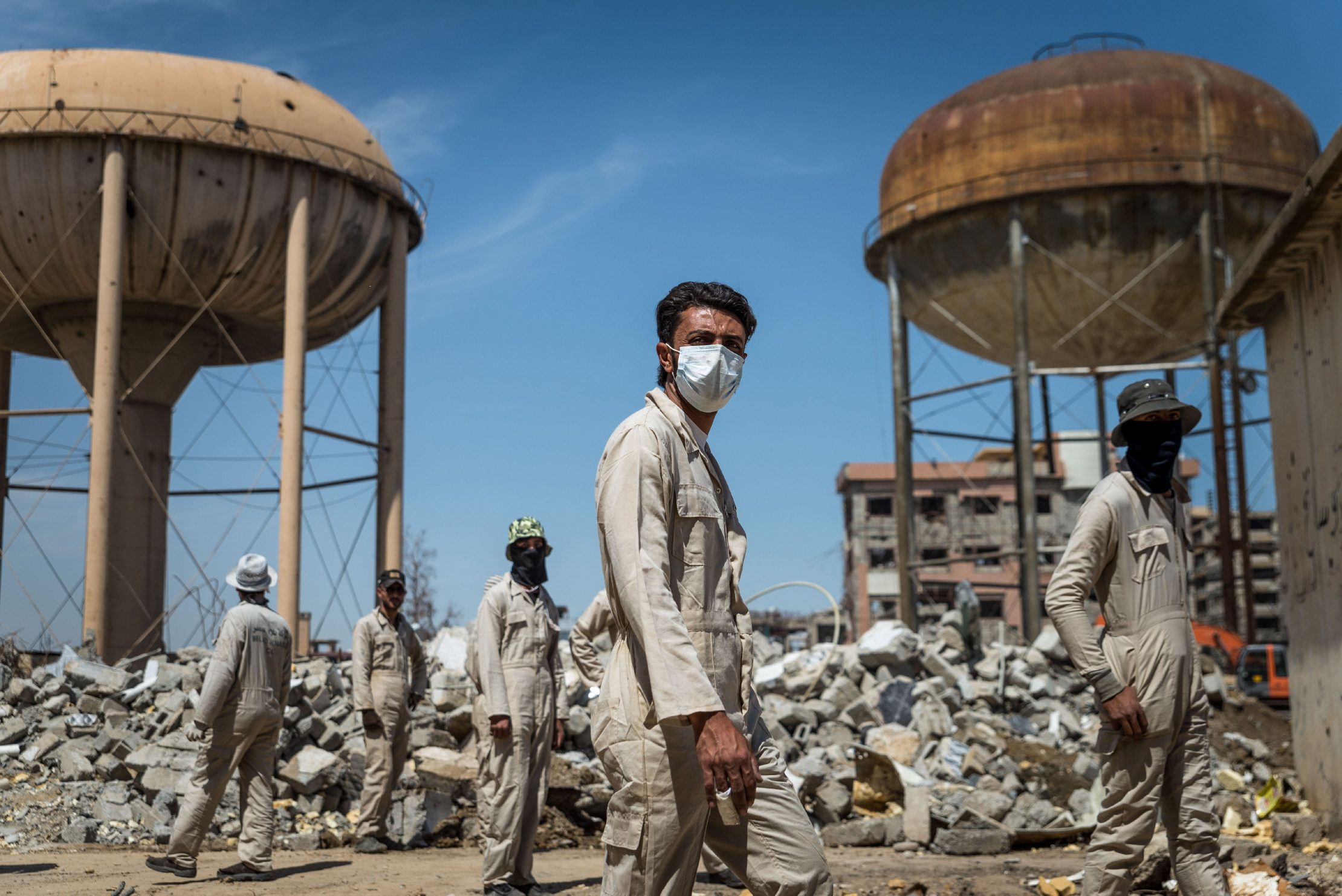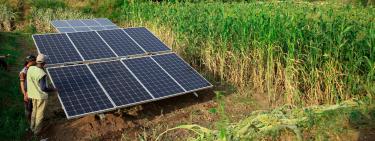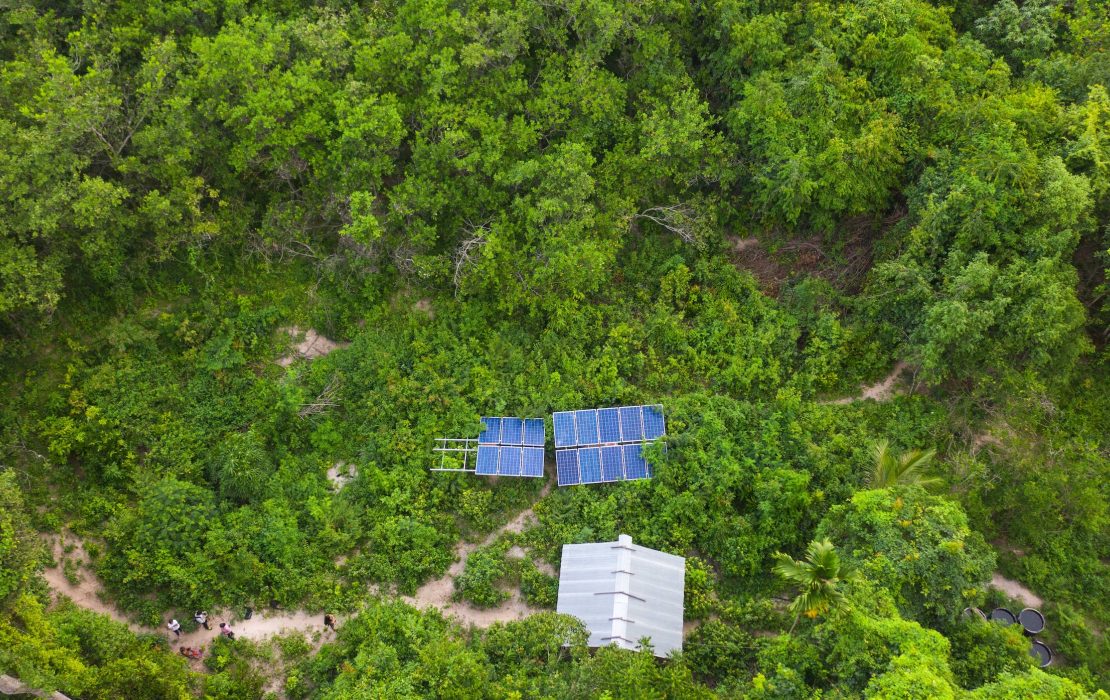
Photo: Claire Thomas / UNDP Iraq
This blog was first published on UNDP SDG Integration.
A strong connection exists between human health and the health of our planet’s ecosystems. As human pressures on the climate and biosphere accelerate, patterns of disease outbreak and channels of human exposure expand. More than ever, our ability to prevent disease and mitigate its impacts depends on our ability to scale up action on the environment and avoid breaches of ecological boundaries.
COVID-19 for example is most likely a zoonotic disease, a disease passed from animals to humans. As pressures have intensified on natural ecosystems and wildlife, the channels of viral outbreak have also grown, as also seen in outbreaks of other zoonotic diseases such as Ebola, SARS and MERS in recent years. Furthermore, COVID-19 impacts are exacerbated for those suffering underlying respiratory conditions. Air pollution today kills more than seven million people worldwide every year – a pandemic in its own right with greater loss of life than many diseases and wars. Accelerating levels of pollution are a threat to both people and planet, making people less able to cope with viral pandemics such as COVID-19 and other outbreaks.
The risks from the converging crises of ecological change and health pandemics are particularly critical for countries already facing multiple drivers of fragility. The Arab States region is a global climate hotspot, with temperatures rising faster than the world average, while also being the world’s most water scarce and food import dependent region. After a series of devastating conflicts in recent decades, millions of refugees and internally displaced peoples struggle to meet daily needs across the region, while the capacity of health and other public systems has been seriously impacted in conflict-affected countries. As countries across the region scale up responses to COVID-19, an opportunity exists to achieve synergies with actions on climate change and ecosystem resilience.

Countries In the Arab States region have made significant efforts to shift beyond oil and towards sustainable energy solutions. Photo: UNDP Yemen
First, social distancing has dramatically reduced mobility, travel, consumption of goods and services, and thus energy use. But once the pandemic is over, normal social and economic life will resume and levels of energy use will rise again. Countries across the region have made significant efforts in recent years to shift beyond oil and towards sustainable energy solutions. UNDP and partners recently issued the 2019 Arab Future Energy Index (AFEX) report which highlights these trends, with solar and wind capacity across the region having seen a ten-fold growth over the past decade and a doubling in just the last two years. These results are unprecedented and, if continued, can emerge as a source of energy independence and economic resilience for recovery from COVID-19 and other ongoing crises facing the region. In 2020, the process to enhance Nationally Determined Contributions (NDCs) under the Paris Agreement, through support from the NDC Partnership, UNDP’s Climate Promise, and affiliated UN inter-agency partnerships can likewise be an opportunity in this regard. Through UNDP Country Offices across the region and UNDP’s Climate Promise, we are now helping countries like Iraq, Jordan, Lebanon, Morocco, Somalia, Sudan and Tunisia scale up climate actions and use their NDCs as catalysts to mobilize global partnerships and investment.
Second, green solutions can help make COVID-19 response and recovery efforts more effective and resilient. The ability of communities to cope with and recover from any crisis relies heavily on the resilience of local water, waste and energy services. In countries in the region facing situations of conflict and fragility, UNDP is expanding support along with United Nations Country Teams and partners for green solutions to address emergency needs of communities affected by crisis. Through ongoing support for conflict-affected communities across the region, solar solutions are helping to power hospitals, clinics, schools and small businesses, and their decentralized and cost-effective nature make them very effective for crisis response and recovery. In places such as Yemen, Sudan, Somalia, State of Palestine and Lebanon for example, UNDP and partner UN agencies have deployed decentralized solar solutions as a practical option to empower community recovery – regenerating energy for small businesses and livelihoods, expanding energy access for water, health and education services, and setting the foundations for stabilization and recovery of society. Many of these lessons can also be applied to the COVID-19 response, as a means of bolstering energy, water and waste management capacities for hospitals, clinics, and other critical elements of national recovery and resilience.
The health of the planet and the well-being of people are inextricable. Addressing climate change and environment priorities can play an important role in preventing and mitigating health crises, while green solutions can make a vital contribution to crisis response and recovery efforts. The Sustainable Development Goals, the Paris Agreement on climate change, and the Sendai Framework on disaster risk reduction all seek integrated solutions to address the growing complexity of our world. UNDP and our partners are coming together to accelerate action on climate change and the environment to manage emerging global risks and build the resilience of the most vulnerable in society.


